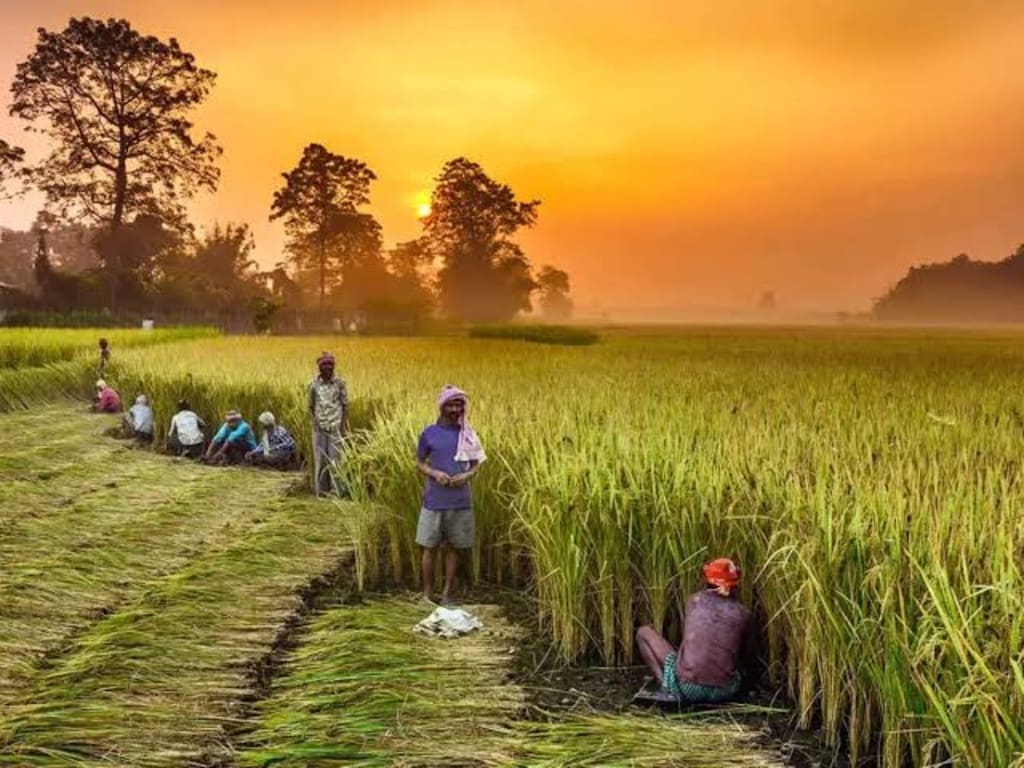The Importance of Sustainable Agriculture in a Changing Climate
Exploring the Role of Regenerative Farming Practices in Mitigating Climate Change and Ensuring Food Security for Future Generations

The world is currently grappling with the challenges of climate change and food security. With a growing population and increasing demand for food, traditional farming practices are no longer enough to meet the needs of the global community. However, a promising solution may lie in regenerative farming practices, which not only help mitigate climate change but also ensure food security for future generations.
Regenerative farming is a holistic approach to agriculture that focuses on restoring and building healthy soil, increasing biodiversity, and improving ecosystem function. This approach is in contrast to conventional farming practices that rely heavily on chemical inputs and monoculture crops. Regenerative farming emphasizes working with nature rather than against it, and is an essential part of creating a sustainable and resilient agricultural system.
One of the key benefits of regenerative farming is its ability to sequester carbon from the atmosphere and store it in the soil. Soil organic matter is a critical component of healthy soil, and regenerative farming practices such as cover cropping, reduced tillage, and rotational grazing can help increase soil organic matter content. As more carbon is stored in the soil, less carbon remains in the atmosphere, thus helping to mitigate climate change.
In addition to carbon sequestration, regenerative farming also promotes biodiversity and ecosystem health. By using diverse crop rotations and integrating livestock, farmers can create a more resilient agricultural system that is better able to withstand extreme weather events and disease outbreaks. Furthermore, regenerative farming practices can help protect and enhance soil health, which is essential for maintaining healthy ecosystems and promoting long-term food security.
Regenerative farming has gained significant attention in recent years as a viable solution to climate change and food security. In 2019, the United Nations declared the upcoming decade as the "Decade of Ecosystem Restoration," calling for the restoration of 350 million hectares of degraded land globally by 2030. Regenerative farming practices are a critical component of this effort, as they offer a practical and scalable solution to many of the challenges facing the global agricultural system.
However, transitioning to regenerative farming practices requires significant investment and support from governments, corporations, and consumers alike. Farmers need access to training, education, and financial resources to implement regenerative practices, and consumers need to be willing to pay a premium for regeneratively produced food.
One of the biggest challenges facing regenerative farming is the perception that it is less productive and less profitable than conventional farming practices. However, research has shown that regenerative farming practices can be just as productive and profitable as conventional practices, while also offering a range of additional benefits such as improved soil health and reduced environmental impact.
Another challenge facing regenerative farming is the lack of infrastructure and support for regeneratively produced food. Many farmers who are interested in transitioning to regenerative practices face barriers such as a lack of access to markets or processing facilities for their products. Addressing these barriers will require a coordinated effort from all stakeholders involved in the global food system.
Despite these challenges, there are many examples of successful regenerative farming practices around the world. In the United States, for example, the Rodale Institute has been conducting research on regenerative farming practices since the 1980s. Their research has shown that regenerative farming can increase yields, reduce input costs, and improve soil health.
In Africa, regenerative farming practices have been used to address a range of challenges, including soil degradation, food insecurity, and poverty. By restoring soil health and promoting biodiversity, regenerative farming practices have helped farmers increase crop yields, improve nutrition, and generate income.
In conclusion, regenerative farming practices offer a promising solution to mitigating climate change and ensuring food security for future generations. By restoring and building healthy soil, promoting biodiversity, and improving ecosystem function, regenerative farming can help create a more resilient and sustainable agricultural system. However, achieving widespread adoption of these practices will require collective





Comments
There are no comments for this story
Be the first to respond and start the conversation.